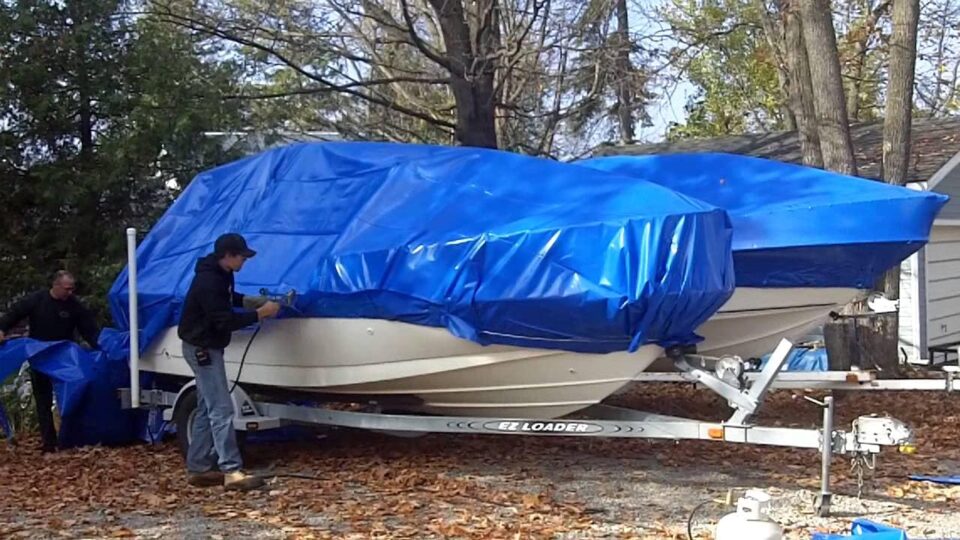
Tips for Winterizing Your Boat in Nova Scotia?
How do I Winterize My Boat?
As a boater in Nova Scotia, you likely already know the importance of winterizing your boat. Winters can be harsh out here on the Atlantic Ocean. Taking the proper steps to prepare your boat for winter will improve its longevity, help ensure you operate a sea-worthy vessel, and save time when springtime arrives. Below is a brief refresher on winterizing your boat, plus a handy one-page Winterize Your Boat Checklist available for free download.
Start With Your Boat Owner’s Manual.
The steps you take to winterize your boat vary and depend on your boat type, motor(s), and where you store your boat. Overall, there are several common tips to consider. That said, the owner’s manual containing specific requirements for your vessel is the best place to start.
Take Care of Your Boat’s Engine, Water, and Fuel Systems.
Ensuring your boat’s engine and all fluids are taken care of will go a long way to keeping your boat in good working condition over time.
- replace gear oil
- replace engine oil
- treat your boat’s fuel with a stabilizer
- flush and drain water coolant
- drain and recycle the gear-case lubricant
- grease engine fittings to protect against oxidation, rust and corrosion
- winterize the shower and water tank
- check and replace any old or leaky batteries
- fog the engine cylinders with aerosol fogging solutions
- drain fish boxes, hoses and pumps
- remove the drain plug from the hull and leave the boat with the bow high
Environmentally Friendly Boat Winterization.
When removing boats, piers or docks from the water, clean and wash down the entire boat to prevent the spread of invasive plants and animals. It’s also essential to collect and properly dispose of any oil, fuels and bilge so that toxic chemicals don’t enter the waterways.
Winter Boat Storage Solutions.
Depending on where you boat in Nova Scotia, the weather will dictate the storage approach. Storing a boat indoors is ideal to avoid damage from the elements or rodents. There are many secure dry land boating and storage facilities across Nova Scotia.
Remove all seat cushions to avoid vermin infestation if you’re leaving your boat outside during winter. Ensure all openings are closed; consider a tarp or shrink-wrap system. Keep in mind that a tarp will only keep out most water and is not thoroughly waterproof. These are reusable and allow for air circulation. You may also consider a shrink-wrap cover to keep snow and rain out. Hiring a professional to shrink-wrap your boat for optimum installation and proper air circulation is important.
Taking the time to winterize and store your boat correctly will go a long way to avoiding more costly part replacements and repairs. A well-maintained and winterized boat can also help you avoid unnecessary insurance claims. If you have any questions about your boat insurance coverage, please contact us, and one of our boat insurance experts can help you and ensure your boat is well protected.
Additional Resources
To see more content about Marine Life, check out our collection of articles.